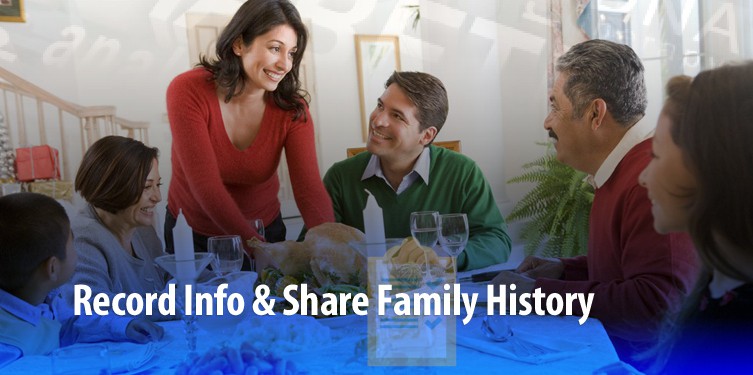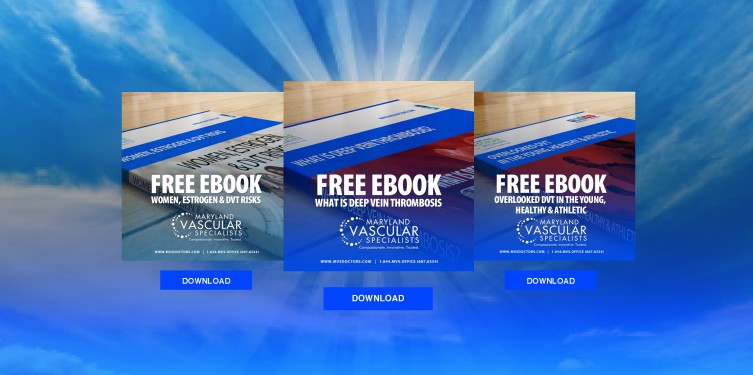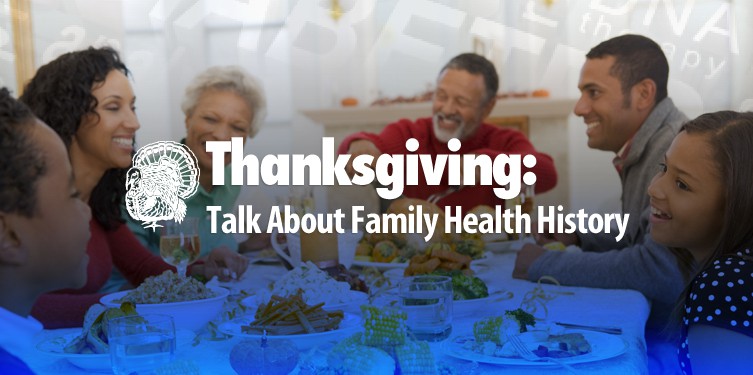This Thanksgiving, Talk About Family Health History
Today and during this Thanksgiving holiday weekend as you share a meal with your family, we encourage you to also talk about your family health history. Did you know that Thanksgiving is also National Family History Day? Even if you don’t have a parent or sibling who has high blood pressure, diabetes, cancer, or a history of heart or vascular (vein & artery) problems, you might be more likely to develop these health conditions if other people in your family currently have or had them in the past.
Each year since 2004, the U.S. Surgeon General has declared Thanksgiving to be National Family Health History Day and encourages all American families to discuss and record illnesses that might run in the family.
The reality is that most families wait until someone gets very sick or a death occurs in the family before any discussion about family health is started. Our Maryland Vascular Specialists team encourages you to do something different and start talking today. With multiple generations of your family under one roof for the Thanksgiving holiday, there will surely be funny and special memorable stories shared at the dinner table. Take this time to also express the need to discuss your family health history – in the similar way that families like to trace their family tree.
Talk to Your Relatives About Family Medical History
While many people know that their family health history has a strong relationship to their personal health, most Americans have never tried to collect and write down their family’s health history.
The Centers for Disease Control and Prevention (CDC) provides the following tips on collecting your family health history:
- Write down the names of your close relatives from both sides of the family: Include your parents, siblings, grandparents, aunts, uncles, nieces, and nephews. *Bonus Tip: It is also helpful for you to include your own children, great-aunts, and great-uncles.
- Talk to these family members about what health conditions they have or had.
- Be open-minded: You might think you know about all of the conditions in your parents or siblings, but you might find out more information if you ask.

Key Family Health History Questions To Ask
You should ask your relatives the following questions, as it will be helpful to in identifying your risk for chronic diseases:
- Do you have any chronic diseases, such as heart disease or diabetes, or health conditions such as high blood pressure or high cholesterol?
- Have you had any other serious diseases, such as cancer or stroke?
- Have you had any circulation problems (peripheral arterial disease – PAD, deep vein thrombosis – DVT, varicose veins)?
- How old were you when the medical condition was diagnosed?
- Has anyone in our family died suddenly or before the age of 50?
- In what area in the U.S. (or other country) did our relatives and ancestors live?
- For relatives who have died, be sure to ask your family members about the cause and age of death.

Record Your Family History & Share It WIth Your Doctor
As you are asking your relatives questions about your family’s health history, you should write down their answers on a piece a paper. Next, you can record, organize, and update your family health history information by using My Family Health Portrait – a free, web-based tool from the Surgeon General. The My Family Health Portrait tool allows you to share the information you have recorded easily with your doctor and other family members.
Learn More About Vascular Conditions

Maryland Vascular Specialists, a premier leader in vein and artery health, offers several educational materials on the risks, symptoms, treatment, and prevention of vascular disease. These include the following eBooks:
DON’T IGNORE LEG PAIN OR LEG CRAMPS – SCHEDULE AN EXPERT CONSULTATION
If you feel fatigue, leg pain, or cramping in your leg that is brought on by walking but relieved when you rest; experience leg pain while resting; or have wounds on your foot that are slow to heal, do not ignore them. Be sure to contact a vascular specialist (or your primary care physician for a referral) as soon as possible. Click here to schedule an expert consultation at Maryland Vascular Specialists – we have several convenient locations to serve you in Maryland and Pennsylvania.

